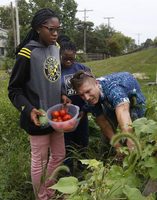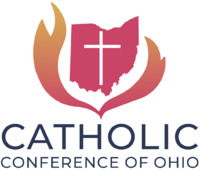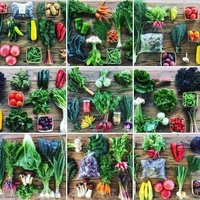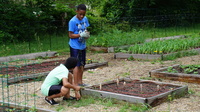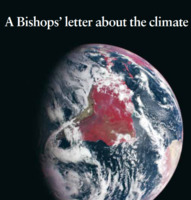Search
85 items
-
Faith Based Farms
Faith Based Farms is a webinar about families and communities from across the United States demonstrating their faith through farming. Colm Flynn, a freelance reporter, conducted his research by traveling from New Jersey, to Wisconsin, and to Michigan. During his journey, he enjoyed conversations with a range of diverse individuals and faith-based groups. -
The Villa Farm
The Villa Maria, located in Villa Maria, Pennsylvania, describes itself on their website as the following: "Operating on 759 acres, the farm of Villa Maria Community Center is an integral part of the heritage of the Sisters of the Humility of Mary. The farm serves as a symbol of the struggle and sacrifice of a small group of women who settled on the Lawrence County land in 1864 and succeeded in establishing a viable, productive farm when others before them had failed. Land management at the farm is based on spirituality, sustainability, simplicity and the preservation of all local life systems." The greenhouse is open seasonally along with a produce market that sells the food grown. -
Columbus bonds with Ghana sister city through agriculture project
Roman Catholic Cardinal Peter Turkson spoke at Mershon Auditorium at The Ohio State University in 2015. The proceeds from his talk with OSU President Michael Drake were used as matching funds in a grant from the Initiative for Food and Agricultural Transformation (InFACT) discovery theme program. The proceeds funded an agricultural exchange between Accra, Ghana, and Columbus, Ohio. -
We Are What We Eat
The 214th General Assembly (2002) Presbyterian Church (U.S.A.) approved the following report titled We Are What We Eat. This report focuses on how people can influence the agriculture revolution with regard to sustainability, stewardship compassion, and community. The final section provides suggestions for activities and studies that congregations can engage in with regard to food production/consumption. -
Going Vegan for Lent can Orient us towards Christ's calling
Elyse Durham writes that it is becoming increasingly common for people to give up meat for lent, and makes note that many of the farming practices we use today are unnecessarily cruel. In addition, the consumer culture in America tempts Christians to live lives of greed instead of virtue. Karen Swallow brings up the idea of "reducetarianism," simply considering the amount of meat you consume and its implications for the environment. Fasts and veganism are suggestions for Christians who want to move away from a life of over-consumption. -
Profile: Rev. Dr. Heber M Brown
Rev. Dr. Heber M. Brown is a Baptist pastor in Baltimore, Maryland. Brown is committed to social development and has been instrumental in the creation of several programs in the Baltimore area. These include Orita’s Cross Freedom School, of which he is the founding director, and the Black Church Food Security Network. The latter works to support the accessibility of food by linking historically African American congregations with urban growers and Black farmers. Brown has received a number of awards recognizing his work, including the Ella Baker Freedom Fighter Award and the Food Justice Award from the Baltimore City Office of Civil Rights. -
Environmental Statement – Reformed Church in America
In 1982, the Christian Action Commission of the Reformed Church in America (RCA) released a document titled “Care for the Earth: Theology and Practice.” This was given to General Synod, who then passed several resolutions outlining the Reformed Church in America’s stance on environmental issues. The Action Institute wrote the article below that discusses the resolutions that were passed. -
Sustainability Photo Contest
This RESTORExchange photo contest is being brought back from the pre-COVID era, and with an added collaboration with the Sustainability Institute. It's based around the question "What does sustainability look like?" This can include sustainability in environmental justice, technology, energy, lifestyle and wellbeing, society and culture, economy and politics, and any other context where you see sustainability in action. We want to see your perspectives and show all the different places that sustainability is practiced! Winning photos will be decided by a panel of judges (yet to be determined), and the top four photos will win a prize! First place will receive $400, second place will receive $300, third place will receive $200, and an honorable mention will receive $100. Submissions will be accepted through March 15, 2023. -
The Kirkmont Memories Project
"The Kirkmont Memories Project is my Capstone project for my senior year at The Ohio State University. I originally came up with the idea in 2020, while I was working on Summer Staff at Kirkmont Center and hearing so many interesting stories about the history of camp. I wish that I had done what I wanted to do at the time, which was to sit down with Buzz Reed, press record, and ask him everything he knows about Kirkmont. When I entered into my final semester at Ohio State, I was assigned to create a lasting change within a community through acts of leadership. All I could think of was that idea of sitting with a friend of Kirkmont, listening to their stories about what Kirkmont means to them, and using that knowledge to help create more memories for the future of camp. I created a plan to interview and survey as many Kirkmont alumni and friends as possible to find a collective story of the history of camp and hear about different perceptions of the value of camp, what camp means to them, and what we see for our future. After reaching out to alumni via Facebook, I've had the privilege of collecting over 30 amazing stories! I loved getting to spend time learning more about alumni who I've looked up to for years, as well as folks who I got to know better. Reading through my notes one after another while creating this website has brought up so many emotions and memories of my own experience, and I hope that as you view this project you can also feel some of that nostalgia and appreciation for our Kirkmont family." -
Community Grower's Network
"The Community Growers’ Network is an initiative for Columbus-based Urban Farmers and Gardeners who steward a fresh food culture in their own neighborhoods. The Community Growers’ Network (CGN) focuses on communities which are food deserts/apartheids. The project is designed to build food system resilience by investing in the capacities of Urban Growers with various experience levels." -
Care for Creation - Catholic Conference of Ohio
"The Catholic Bishops of Ohio invite you to study the issues related to the stewardship of God’s creation. Care for the environment is a fundamental principle within Catholic Social Teaching. We applaud efforts already underway in many Catholic homes and institutions that help conserve energy, protect the environment, and advance a greater understanding of faithful stewardship. We hope that Catholic families and institutions around the state will continue in such efforts."
This resource includes a statement calling to care for God's creation and contains information and links to several other resources related to religion and environmentalism. -
Take Shelter Here
"This is a picture of a cave in Chillagoe, a town in Queensland, Australia. My study abroad group learned that Indigenous people used to take shelter here, and there are still some art on the walls. Also, the caves are made from limestone, which is made from coral, which means this whole area was once a shallow ocean that was compressed and pressurized over time. The connection between people using the caves as shelter and the vast amount of history connects to sustainability because of how it all ties together. I care about these caves because it’s proof of how the environment continues to change and evolve, and how people continue to properly use and maintain it. From oceans for fish to shelter for the Indigenous people to an educational tool for us, the environment always provides and we should continually work to preserve it." Taken by Shreya Mishra. Submitted to the RESTORExchange Sustainability Photo Contest. -
In Threatened Island Nation, Pope Hears Plea for Climate Action
Pope Francis visited Papua New Guinea, a Pacific Island nation facing serious environmental issues including water pollution, sea level rise, and deforestation. This continued his involvement in the discussion on climate change as he met with governor general Bob Dadae and spoke at meetings. The article covers the Pope's visit, the environmental challenges facing Papua New Guinea, and the ties between religious positions and care for the environment and people who are affected by climate change. -
How Religion Influences Our Relationship With the Environment
The article shows how religious change can effect trends in the environment and how it can produce better environmental conditions attitudes. It lists statistics on which countries have certain environmental issues and how religion may play a role in certain situations. -
Seminary Hill Farm Community Supported Agriculture (CSA)
The Seminary Hill Farm website includes the following information on their community supported agriculture program:
"Transforming the traditional model of a CSA program, our program follows a new model that allows you to choose what items you would like week to week without having to commit to the entire season. Once the season begins, simply choose the items you would like to enjoy in your kitchen that week by visiting our website and meet us at one of our convenient locations to pick up your honestly fresh ingredients. We will have the items properly washed, packed and ready for you to take home and celebrate." -
The Charles Madison Narbit Memorial Garden
The Charles Madison Narbit Memorial Garden website states the purpose for it's creation:
"About the Garden: The Charles Madison Nabrit Memorial Garden
Named 2015 Community Garden of the Year and selected as one of 12 Hub Gardens in Central Ohio by Franklin Park Conservatory and Botanical Gardens, CMNMG@CCAF was created as a living legacy to Charles Madison Nabrit’s commitment to holistic health, self-determination, education and community service.
Our mission is to:
(1) increase affordable access to organic produce;
(2) increase awareness of the spiritual and cultural connections to gardening within black and brown communities;
(3) increase children’s exposure to functional STEM studies; and
(4) increase economic self-sufficiency and sustainability in the garden, in our homes and in our community.
Opened in 2014 in the midst of an urban food desert, CMNMG@CCAF is a 3,850 square foot, organic, biodiverse, self-sustaining space behind a church housing an historic, 105+ year-old, predominantly black congregation, descendents of the African diaspora to the Americas. Our hashtags speak to our spiritual and cultural heritage: #HeStartedUsinaGarden and #WeCameHeretoCultivate." -
Shepherd's Fest (Shepherd's Corner)
Shepherd's Corner ecological center provides information regarding their annual festival on their webpage:
"Explore our food pantry gardens, take a hayride around the property, meet our sheep, and walk the meditation trail & labyrinth. Savor delicious food from a local food truck (Moody Trudy). Meet the Jefferson Township fire department and check out a fire truck up close. Watch Gail Maraman, a local felt artist, demonstrate her art. Chat with AEP representatives about electricity savings, consider more responsible energy use with Columbia gas. and learn about the environmental efforts of Green Spot Columbus. We will have a farm stand featuring of our naturally grown produce, 2019 maple syrup, and crafts made by the Dominican Sisters of Peace and volunteers." -
Engaged Organizations: A Rocha International
A Rocha International discuss their mission on their website:
"At A Rocha USA, our mission is to restore both people and places through collaborative, community-based conservation.
We resource Christians to care for creation where they live by building a network of hands-on conservation projects in communities across the nation. Through partnerships with individuals, churches, and community groups, we provide content, curriculum, and a network of support for improving local habitats and increasing biodiversity." -
Engaged Organizations: Columban Center for Advocacy and Outreach
Columban Center for Advocacy and Outreach serves as a line of communication between Columban missionaries and policy makers in Washington D.C. Missionaries are stationed in 16 countries around the world, bringing attention to environmental justice issues that are most pressing for marginalized populations in the areas. Their primary focus is combating human-induced climate change. In addition, they advocate for sustainable development and agricultural systems, and right to clean water. -
A Bishops’ Letter about the Climate
Below is a section of the introduction from A Bishops’ Letter about the Climate, which covers a multitude of critical environmental issues, from the 2014 Bishops' conference:
"We have lived with reports and forecasts of climate change since the 1980s. Our climate is the result of the interaction of complex systems and there is often a great distance between cause and effect in terms of both space and time. There are uncertainties and a lack of clarity. However, the knowledge we possess today does not allow us to postpone until tomorrow
what needs to be done now. Our human climate impact must decrease for the sake of the earth, for the sake of the world that God so loves that God gave us Jesus Christ." -
The Hope We Share: A Vision For Copenhagen
The Anglican Communion Environmental Network addressed the United Nations Framework Convention on Climate Change (UNFCCC)
Conference Of Parties (COP) Meetings, the Fifteenth Session, held in Copenhagen, Denmark in December 2009. They lament the consequences of environmental human footprints, some of which include the lack of drinkable water in various parts of the world, the increased difficulty to grow crops due to the water shortages, rampant consumerism, and subsidies for fossil fuels. -
Environmental Stewardship and Conservation
An article under the Mormon Newsroom from the official website of The Church of Jesus Christ of Latter-day Saints that explains the Church teachings and stance regarding environmental stewardship and conservation. The article also links other Church video resources, as well as a few articles, resources, and a book titled, “Stewardship and the Creation: LDS Perspectives on the Environment”. The book is a compilation of 17 essays that aim to inspire Latter-day Saints to strongly consider the importance of being environmental stewards and protecting God’s creations. -
Overpopulation and the Lifeboat Metaphor: A Critique from an African Worldview
Many scientists have warned that the earth is nearing overpopulation or has already reached its carrying capacity. Garret Hardin proposed the lifeboat ethics metaphor to address this crisis and proper resource distributions. Okyere-Manu comments that this metaphor does not take into account the African political and cultural worldview. Hardin's metaphor is also reliant on inequality which disproportionately affects vulnerable communities. -
Himalayan Institute
Founded in 1969 by the great teacher and humanitarian, Swami Rama, the Himalayan Institute acts on the basis of yoga tradition and Eastern spirituality. Through the living connection to an ancient wisdom tradition of the Himalayan Masters, and the guidance of spiritual head Pandit Rajmani Tigunait, the Himalayan Institute seeks to serve communities across the globe of those who seek to live their spiritual values. The institute provides resources for anyone seeking spiritual wellness such as yoga and meditation training, local retreats and seminars, and domestic and international excursions, frequently taking the form of a trek through the Himalayas. The Himalayan Institute strives for sustainable living in partnership with the community in Honesdale and also in their projects in India and Africa- providing sustainable living, jobs, and farming in several different communities. -
How to Green your Parish
This article is about the importance of parishes to participate in environmentally sustainable actions based on Pope Francis’s Laudato Si’. It encourages parishes to strive to become more eco-friendly by taking work together as a community and focusing on change one issue at a time. The article focuses on three main areas: reducing the parishes greenhouse gas, sustaining food and land use, and preserving water.



